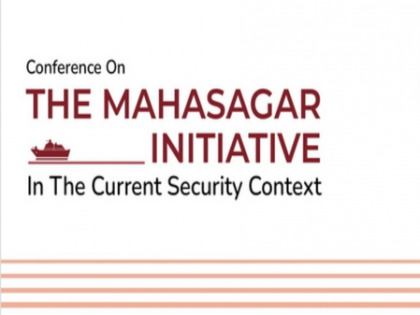From SAGAR to MAHASAGAR: Experts call PM Modi’s maritime shift ‘strategic and visionary’
By IANS | Updated: May 23, 2025 20:47 IST2025-05-23T20:44:38+5:302025-05-23T20:47:59+5:30
New Delhi, May 23 In a defining moment for India’s maritime diplomacy, the country unveiled its expanded oceanic ...

From SAGAR to MAHASAGAR: Experts call PM Modi’s maritime shift ‘strategic and visionary’
New Delhi, May 23 In a defining moment for India’s maritime diplomacy, the country unveiled its expanded oceanic strategy under the banner of the ‘MAHASAGAR’ (Mutual and Holistic Advancement for Security and Growth Across Regions) initiative. This move marked a significant evolution of Prime Minister Narendra Modi’s original SAGAR doctrine. The new initiative demonstrates a shift from the regional focus on the Indian Ocean to a comprehensive global maritime approach.
The strategy was the centrepiece of a high-level dialogue held in the capital, bringing together top defence experts, diplomats, and scholars for a conference titled “The Mahasagar Initiative in the Current Security Context”, organised by the Chintan Research Foundation.
Delivering the keynote address, Admiral R.K. Dhowan (Retd), former Chief of Naval Staff, highlighted India’s growing maritime prowess:
“The Indian Navy is fully capable of deterring threats, asserting control across ocean spaces, and defending the nation's interests through operational manoeuvre, sea denial, and sea control. Our readiness also covers coastal defence and asymmetric warfare scenarios.”
Shishir Priyadarshi, President of the Chintan Research Foundation, reflected on the journey from SAGAR to Mahasagar:
“‘SAGAR’—Security and Growth for All in the Region—was rooted in the belief that economic development cannot be achieved without peace and stability. It initially targeted the Indian Ocean Region but laid the groundwork for a broader global approach.”
Over the past decade, India has steadily expanded its maritime partnerships and blue economy engagement. Former Ambassador Rajiv Bhatia stressed SAGAR's impact in strengthening regional ties and developmental outreach:
“SAGAR has driven India’s efforts to build regional partnerships and boost maritime development, especially in the blue economy.”
Now, India’s sights are set on a more ambitious global maritime framework. Prof. Chintamani Mahapatra, Founder and Chairperson of the Kalinga Institute of Indo-Pacific Studies, highlighted the shift:
“MAHASAGAR goes beyond SAGAR—it seeks shared prosperity and security across all oceans. PM Modi envisions a world where every country with maritime borders benefits equally from peace, trade, and sustainability.”
Jayant Misra, Executive Committee Member of MP-IDSA, elaborated on the expanded scope of Mahasagar: “The scope of MAHASAGAR is wider. It now includes collective security, regional coordination, and enhanced global maritime partnerships.”
Stressing the diplomatic symbolism, Ruchita Beri, Senior Fellow at VIF, pointed out the strategic location of the initiative’s announcement:
“Announcing the Mahasagar initiative from Mauritius underscored the country’s strategic importance and symbolic partnership in India’s maritime outreach.”
Prof. Gulshan Sachdeva, Coordinator at DAKSHIN-RIS, offered a broader perspective:
“While SAGAR was focused on the Indian Ocean, MAHASAGAR includes other oceanic regions and the broader Global South. It positions India as a first responder and a key economic and strategic partner.”
As oceanic challenges and geopolitical rivalries intensify, the Mahasagar Initiative signals a bold new era in India’s foreign policy. It redefines India’s maritime role—not just as a regional power, but as a global advocate for maritime security, economic inclusion, and sustainable ocean governance.
With MAHASAGAR, India is positioning itself as a strategic leader offering a forward-looking model for international maritime cooperation in the 21st century.
Disclaimer: This post has been auto-published from an agency feed without any modifications to the text and has not been reviewed by an editor
Open in app